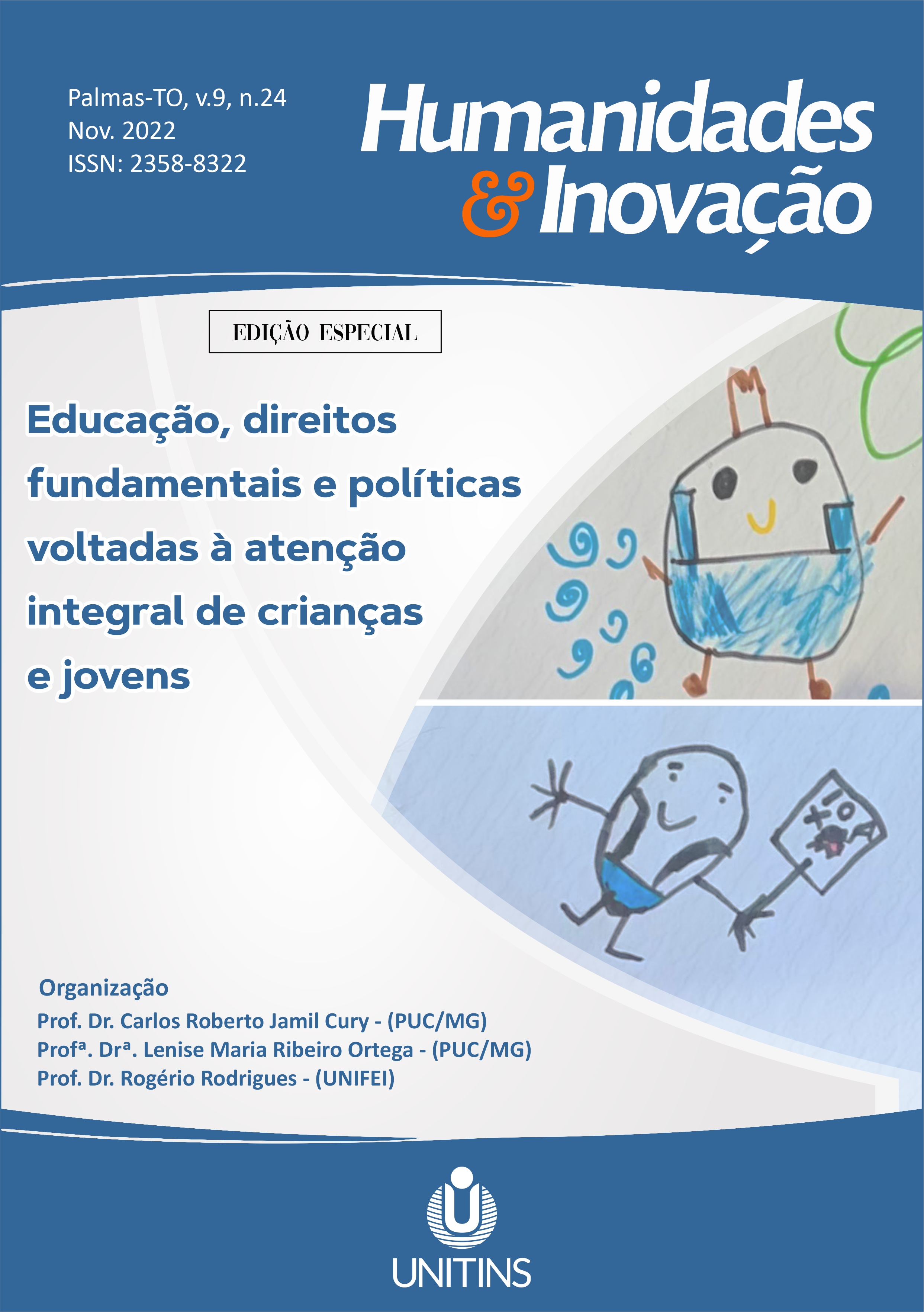THE CHILDREN’S RIGHTS TO WELL-BEING IN THE CONTEXT OF THE PROFESSIONAL NEEDS AND THE CHOICE OF THE FUTURE PROFESSION OF EARLY CHILDHOOD EDUCATORS
Abstract
The purpose of mix approach study was to investigate the most common reasons that young people have when deciding to choose their future profession in early childhood education (ECE) in our circumstances. It was conducted on a sample of 100 in-service teachers from the ECE institution in Banja Luka (Bosnia and Herzegovina). The qualitative baseline study yielded preliminary findings: the university program should encourage further personal growth and development of young people in the direction of their autonomy, creative thinking, ethics, reflection, and other qualities of lifelong learning. The quantitative survey includes several factors of the ECE profession in society, such as socio-economic, professional, personal factors, and study program factors, as well as the factors of transversal competencies important for ECE profession. The study implications link these factors with a holistic approach towards promoting child’s rights on well-being, particularly the ability to achieve and develop potentials through physical, social and emotional well-being.
References
BUCHBERGER, F.; CAMPOS, B. P.; KALLOS, D.; STEPHENSON, J. Green Paper on Teacher Education in Europe: High-Quality Teacher Education for High Quality Education and Training: Thematic Network on Teacher Education in Europe. Umea: Umea University, 2000. Available at: https://projects.au.dk/fileadmin/projects/TEPE/Green_Paper_on_Teacher_Education_in_Europe.pdf
CARE, Esther; LUO, Rebekah. Assessment of Transversal Competencies: Policy and Practice in the Asia-Pacific Region. Paris-Bankok: UNESCO, 2016. Available at: https://unesdoc.unesco.org/ark:/48223/pf0000246590
CUNHA, Flavio; HECKMAN, J. James. Investing in Our Young People. NBER Working Paper No. 16201. Cambridge, MA: The National Bureau of Economic Research, 2010. Available at: https://www.nber.org/papers/w16201
DAHLBERG, Gunilla; MOSS, Peter; PENCE, Alan. Beyond Quality in Early Childhood Education and Care: Postmodern Perspectives. London: Falmer Press, 1999.
ELLIOT, Enid. We’re not robots. The Voices of Daycare Providers. Albany: State University of New York Press, 2007.
FUKKINK, Ruben; JILINK, Lisanne; OP DEN KELDER, Rosanne; ZEIJLMANS, Kirti; BOLLEN, Iris; KOOPMAN, Letty. The Development of Interaction Skills in Preservice Teacher Education: A Mixed-methods Study of Dutch Pre-service Teachers. Early Childhood Education Journal, v. 47, 2019, pp. 321–329. Available at: https://doi.org/10.1007/s10643-019-00927-7
MASHFORD-SCOTT, Angela; CHURCH, Amelia; TAYLER, Collete. Seeking Children’s Perspectives on their Wellbeing in Early Childhood Settings. International Journal of Early Childhood, v. 44, no. 3, 2012, pp. 231–247. Available at: https://doi.org/10.1007/s13158-012-0069-7
NEW ZEALAND GOVERNMENT. A Vision for the Teaching Profession. Education Workforce Advisory Group Report to the Minister of Education Final Report. April, 2010. Avalaible at: https://www.beehive.govt.nz/sites/default/files/10.pdf
PALLANT, Julie. SPSS priručnik za preživljavanje [SPSS Manual for survival]. Beograd: Mikro knjiga, 2011.
POLLARD, Elizabeth. L.; Lee, Patrice. D. Child well-being: A systematic review of the literature. Social Indicators Research, v. 61, no. 1, 2003, pp. 59–78. Available at: https://doi.org/10.1023/A:1021284215801
Author. 2012.
Author. 2014
Author. 2019.
SAHLBERG, Pasi. Finske Lekcije. Šta Svet Može da Nauči iz Obrazovnih Reformi u Finskoj? [Finnish Lessons. What Can the World Learn From Education Reforms in Finland?]. Beograd: Novoli, 2013.
STATISTICAL INSTITUTE OF THE REPUBLIKA SRPSKA. Preschool education in school 2011/2012-2015/2016 years. The second extended edition. Banja Luka: Republički zavod za statistiku, 2016. Available at: http://www2.rzs.rs.ba/static/uploads/bilteni/obrazovanje/predskolsko_obrazovanje/Predskolsko_Obrazovanje_br9_2.izdanje.pdf
TEMPLE, Elizabeth; EMMETT, Susan. Promoting the Development of Children's Emotional and Social Wellbeing in Early Childhood Settings: How can we Enhance the Capability of Educators to Fulfil Role Expectations? Australasian Journal of Early Childhood, v. 38, no. 1, 2013, pp. 66-72. doi:10.1177/183693911303800111
TIKLY, Leon. Towards a Framework for Researching the Quality of Education in Low-Income Countries. Comparative Education, v. 47, no. 1, 2011, pp. 1-23. https://doi.org/10.1080/03050068.2011.541671
VARGAS-BARÓN, Emily. Scientific Evidence and Benefits of Investing in Early Childhood Learning. Video Presentation from the Conference Let's Increase the Opportunities for Children in BiH for Early Learning. Sarajevo, February 2012, UNICEF BiH, 2012. Available at: http://www.youtube.com/watch?v=yP5Iit2SLFg&list=PLE5735C81EEF68898
WEIKART, David. Appropriate Developmental Early Childhood Education. In: UNESCO. Educare in Europe. Report of the conference held in Copenhagen, Denmark, October 1992. Paris: The United Nations Educational, Scientific and Cultural Organisation, 1992.
WILLIAMS, Peter. Lessons from the Future: ICT Scenarios and the Education of Teachers. Journal of Education for Teaching, v. 31, no. 4, 2005, pp. 319–339. Available at: https://doi.org/10.1080/02607470500280209
ČEPIĆ, Renata; TATALOVIĆ VORKAPIĆ, Sanja; LONČARIĆ, Darko; ANĐIĆ, Dunja. Considering Transversal Competencies, Personality, and Reputation in the Context of the Teachers' Professional Development. International Education Studies, v. 8, no. 2, 2015, pp. 8-20. Available at: http://dx.doi.org/10.5539/ies.v8n2p8
Copyright Notice
The submission of originals to this periodic implies in transference, by the authors, of the printed and digital copyrights/publishing rights. The copyrights for the published papers belong to the author, and the periodical owns the rights on its first publication. The authors will only be able to use the same results in other publications by a clear indication of this periodical as the one of its original publication. Due to our open access policy, it is allowed the free use of papers in the educational, scientific and non-commercial application, since the source is quoted (please, check the Creative Commons License on the footer area of this page).











